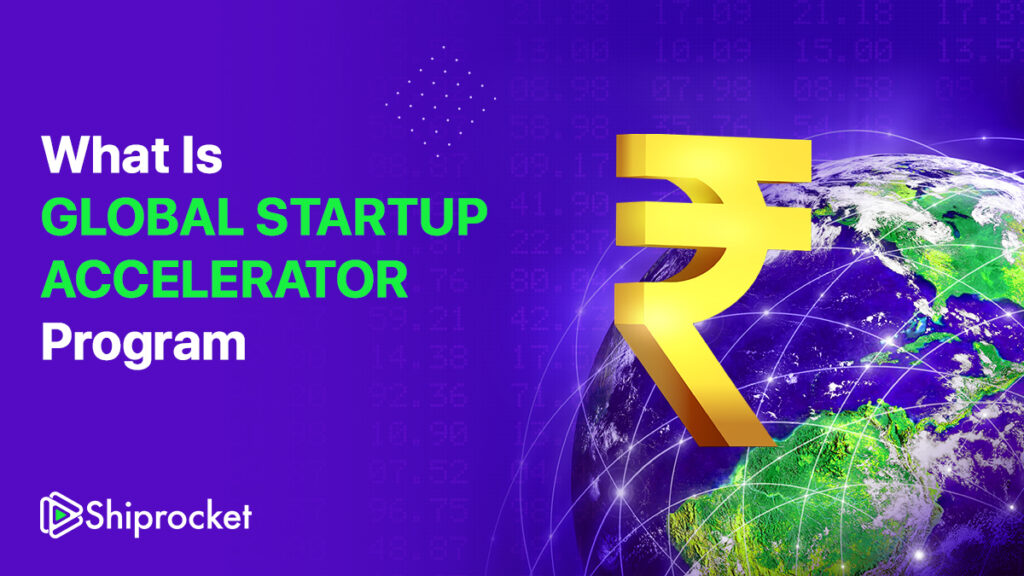What is Global Startup Accelerator Program

With the introduction of Y Combinator in 2005, a new manner of helping businesses was formed. In Cambridge, Massachusetts, there is a company called Combinator. The first accelerator program was launched in 2013. It was the first of its kind, and it invested in a small number of potential entrepreneurs, including Reddit and Loopt, a mobile location firm that sold for $43.4 million the last year, 2012. It worked with them for three months using a lean startup methodology. Months to prepare them for a pitch to a select group of venture capitalists.
This approach has been reproduced, adapted, and developed by accelerator programs worldwide in less than ten years. The largest, such as 500 Startups in Silicon Valley and Techstars in the United States and London, can choose from hundreds of entrepreneurs and founding teams fighting for the benefits their programs can bring. Many more are looking for the next great thing, and a new wave of programs, known as impact accelerators, are leveraging the approach to uncover firms that promise both a social and a financial return.
It’s not surprising that the number of startup accelerator programs is increasing. The cost of starting a business has decreased dramatically due to advances in digital technology. At the same time, lower startup costs have made it possible to invest far smaller sums of money than in the past. The resulting surge in startups implies that establishing effective ways of incubating early-stage firms is more important than ever.
With accelerator programs more popular than ever – 2013 saw a record number of applications – challenges for startup programs might arise as the market becomes more congested. There has been an increase in the number of programs launched — with the top programs continuing to dominate. A competition to find the greatest founding teams and the most profitable businesses.
Anyone looking to establish a niche in the area will benefit greatly from understanding how accelerator programs can identify and nurture the most likely to succeed firms. However, the accelerator model is still in its infancy, and there is a lack of empirical data to evaluate the success of accelerator programs and their alumni adequately.

What is an Accelerator Programme?
The term ‘acceleration’ has a broad definition within the startup world. Furthermore, because accelerators are still a relatively new and novel approach to nurturing businesses, the model is in motion, making specific definitions challenging to come by.
On the other hand, accelerators vary from typical company incubators in several key areas. The term ‘accelerator’ is used to designate a specific wave of programs developed out of the Y Combinator model, which often has the following qualities in common:
• A competitive application process that is open to everyone.
• Provision of pre-seed funding in exchange for equity.
• A concentration on small groups rather than single entrepreneurs.
• Support for a set time, usually three to six months, consisting of scheduled events and intensive mentoring.
• Rather than individual enterprises, cohorts or ‘classes’ of startups
What an Accelerator is not
Various types of support are sometimes used in conjunction with acceleration. Individual accelerators may offer these services or be closely associated with entities that do. Still, according to our definition, the following sorts of incubation support are not accelerators in and of themselves:
Angel Networks:
Individual investors put their own money into small or growing firms in exchange for mentoring and business advice.
Business Competitions:
The goal is to encourage innovation and identify outstanding entrepreneurs.
Co-working Spaces:
Provide flexible desk and meeting space, the opportunity to network with other businesses or entrepreneurs, and a calendar of events or learning opportunities to help companies succeed.
Entrepreneurship Courses:
Typically, these programs are provided by business schools to educate the theoretical foundations of entrepreneurship, while some may also contain a practical component.
Startup Weekends:
Concise, intensive, hands-on programs aimed to stimulate collaborative development and assess whether a business idea is viable.
Make Spaces:
People can gather in community–style places to collaborate and share knowledge.
Mentoring Schemes:
They are designed to share skills and experience and solely focus on mentoring.
Seed Funds:
Startups are given early equity capital.
Social Venture Academics:
Offer programs to assist social ventures and entrepreneurs in accelerating their learning, whether they are already working on a company or are still in the planning stages.

Different Types of Accelerators:
However, not all accelerators are created equal. There may be considerable disparities between plans even when using the above definition – which covers a relatively narrow range of activities and intentionally excludes other support schemes such as entrepreneurship courses and co-working spaces.
The following are some key areas where accelerators may differ:
• Mission – Many programs have a specialty focus or target a particular set of startups as part of their overall aim. Many accelerators are primarily digital and therefore are less likely to pursue businesses that require longer-term investment, such as medicines. Other sector-specific focus areas, such as health and education, can be found both within and outside of digital.
• Area of Expertise– One reason for specialization is that it allows for a more in-depth analysis of a specific industry or group of entrepreneurs with similar qualities. However, as the accelerator industry gets increasingly crowded (some may even say congested), specialization may become a critical method for accelerators to stand out and fight for attention.
• Sources of Funding- Another vital distinction between accelerators is funding, which is strongly tied to the mission. As previously indicated, the most usual option is for programs to be set up as a venture capital–style fund, taking shares in the accelerated enterprises in the hopes of eventually recouping program expenditures.

Accelerators are built for various causes and so have a variety of goals.
• Venture-backed accelerators, for example, often seek to improve deal flow for investors.
• A government-backed accelerator with the purpose of local economic growth may be formed.
• A corporate-sponsored accelerator might be developed to help solve specific research problems or to help grow an ecosystem around a core technology.
Many programs have a specialty focus or target a specific set of startups as part of their overall aim. Many accelerators are primarily digital and therefore are less likely to pursue businesses that require longer-term investment, such as medicines. Other sector-specific focus areas, such as health and education, can be found both within and outside of digital.
Impact Accelerators:
The odds are stacked against early-stage, pre-revenue companies because impact investors often invest in established ventures with proven business models and income streams. Enterprises. At the same time, there aren’t enough mature impact ventures to meet these needs. Work with as investors, As a result, impact accelerators try to close this gap in part. Assist early-stage startups with the resources they need to grow.
Impact accelerators follow the same guidelines as traditional accelerators, except that they focus on social issues. They differ in some critical ways. They collaborate with startups in a variety of industries. Their goals are not confined to financial gain because they have a social or environmental value. Return. Impact accelerators are more likely to support the government and must find ways to recoup their costs.
Ensuring that their primary focus is on the social and environmental benefit
Employment, economic growth, health, and renewable energy have been the most prominent areas of concentration for these accelerators thus far.
Conclusion:
The number of accelerators has risen in recent years, and a significant factor in this has been the changing economics of the startup landscape. As well as reduced startup costs, it has become less expensive and easier to target new customers, and tech developments such as direct payments, app stores, and subscription models have created more straightforward routes to revenue.







